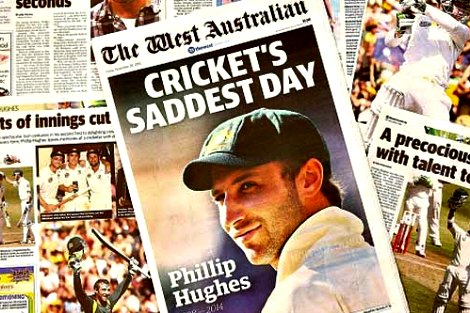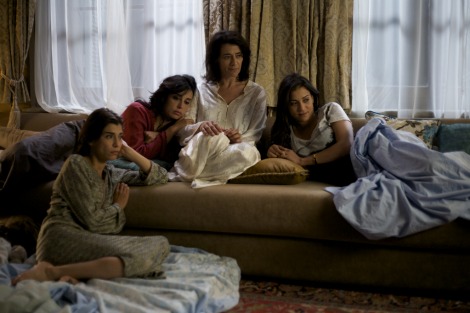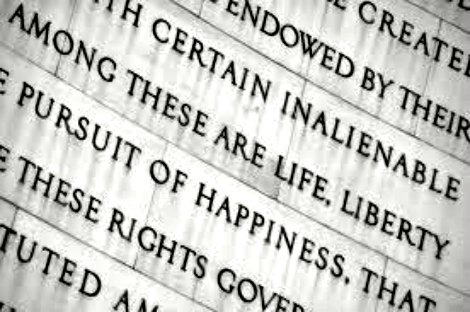Keywords: Ritual
There are more than 200 results, only the first 200 are displayed here.
-

AUSTRALIA
- Andrew Hamilton
- 16 April 2015
76 Comments
The burning of a church offers possibilities. It would be a bold and noble gesture, exactly measured to the destruction done to the Catholic Church by priests' sexual abuse, to leave the ruined walls of St James as a shrine to the victims, a record of the evil that was done, and a pledge that never again will children be unprotected in the Catholic Church.
READ MORE 
-

AUSTRALIA
- Andrew Hamilton
- 19 March 2015
18 Comments
It is becoming common to describe people who offer political, economic and cultural comment in the mainstream media as Grumpy Old Men. It is a nice insult that warms the hearts of those of us whose commentary is confined to the fringe media. 'But, wait a moment', my inner self interrupts, 'Are you really so very different?' To blot out the sound of silent scepticism, I rush on, 'There is Grumpy and grumpy. There is surely a difference ...'.
READ MORE 
-

ARTS AND CULTURE
- Isabella Fels
- 11 March 2015
5 Comments
How I love sweating in the gym. I frantically try to keep going on the treadmill to burn off as many of the naughty calories as I can. I can really feel myself spinning, almost like a spiritual awakening. My personal trainer is my motivator, and in many ways I feel like I have already won the battle of the bulge just by turning up.
READ MORE 
-

- Aloysious Mowe
- 25 February 2015
Just before Christmas last year, the United States Senate Select Intelligence Committee released its report on the CIA's Detention and Interrogation Program, and its use of torture on detainees between 2002 and 2006. Among the report's key findings was the fact that the brutality of the torture and the harshness of the detention regime went beyond what the CIA. had reported to policy-makers (in other words, the CIA deliberately misled its Senate overseers); that the CIA's claims for the effectiveness of torture to obtain information that was vital for national security were inaccurate and unfounded; that the torture regime had damaged the standing of the United States, and resulted in significant costs, monetary and otherwise; that personnel were rarely reprimanded or held accountable for violations, inappropriate activities, and systematic and individual management failures. Read more
READ MORE
-

- Brian McCoy
- 25 February 2015
2 Comments
I have witnessed Aboriginal payback. It was in the Kimberley on an open sports oval. A young girl from the community had been found killed and I watched the community's desire to re-balance itself with the serious and public punishment of the offender. The whole community was present as the family of the deceased took it in turns to beat his back and stab his thigh. It was one of the most highly charged emotional events I have ever experienced.
At the end, after all the punishment, he fell. The nurses took him into the health clinic and he was later evacuated to hospital. After the ritual was over I remember speaking to the father of the young girl. 'I want to kill him', he said. 'But even that will not remove your pain', I replied. His hurt was raw and tangible and nothing seemed able, at that time, to even get close to healing it. Read more
READ MORE
-

ARTS AND CULTURE
- Barry Gittins and Jen Vuk
- 13 February 2015
The Best Australian Essays 2014 finely illustrates the unnervingly unclear line between essay and short story, but no-one plays with form quite like the indomitable Helen Garner. She offers such a brooding, aching ode to her mother. Proof again that good writing is an inexorable, spiritual exercise that seers itself into the reader's memory. How does she do it?
READ MORE 
-

ARTS AND CULTURE
- Brian Matthews
- 30 January 2015
9 Comments
We all have these abruptly resurfacing images and references that pop up unannounced. For example, Treasurer Joe Hockey’s musings on the poor, who don’t drive very far – ‘O scathful harme, condition of povertie’ (Chaucer). And the rich, who are ‘lifters’. I was invaded mentally by Yeats’s ‘Surely among a rich man's flowering lawns.’ Without pain and with cigars and smirks of self-congratulation.
READ MORE 
-

AUSTRALIA
- Catherine Marshall
- 12 December 2014
10 Comments
On Christmas Eve I will deliver, for the twelfth year in a row, an iced, naively decorated fruitcake to my oldest and dearest Australian friend, Enid. I will pull up into the driveway of her brick home. She will open the front door before I have even knocked, and before she’s even kissed me hello will tell me how beautiful the cake is and how she couldn’t possibly cut into it.
READ MORE 
-

AUSTRALIA
- Andrew Hamilton
- 11 December 2014
11 Comments
Hughes' death became a media event. Media analysis of death and grieving makes it more difficult to respond simply and naturally because we are made self-conscious, aware of what we are doing and how it might be seen by others. It affects the intimate connections associated with grieving, as well as our ability to be touched by hope. A specificity that only exacerbates loss.
READ MORE 
-

AUSTRALIA
- Jim Pilmer
- 05 December 2014
10 Comments
Personal grief, complicated by group dynamics, is a volatile mixture. Phillip Hughes' death reminds us that personal stories highlight the huge variety of needs and perceptions surrounding a death in the workplace. When do we tidy the desk of the colleague who won't be back? There is a time, but maybe it's not yet.
READ MORE 
-

ARTS AND CULTURE
- Tim Kroenert
- 20 November 2014
2 Comments
The three recently reunited sisters are immersed in whispered conversation, during the second day of mourning at the house. In the next room, older men in ceremonial garb chant a mourning ritual. Suddenly, the sisters get the giggles, only to be angrily shushed by one of the men in the next room. But grief can't be stage managed, and it seems only natural that the process should be guided by normal human interaction.
READ MORE 
-

AUSTRALIA
- Shira Sebban
- 19 November 2014
4 Comments
People of faith seem able to find an opportunity for growth, spirituality and meaning in every good deed they do, apparently experiencing true happiness along the way. By way of contrast, emotional happiness is often dismissed as selfish, elusive and unpredictable. But focusing on 'what works for us', and connection through family, friendship and community, also allows us to find purpose, and to savour many happy moments along the way.
READ MORE 